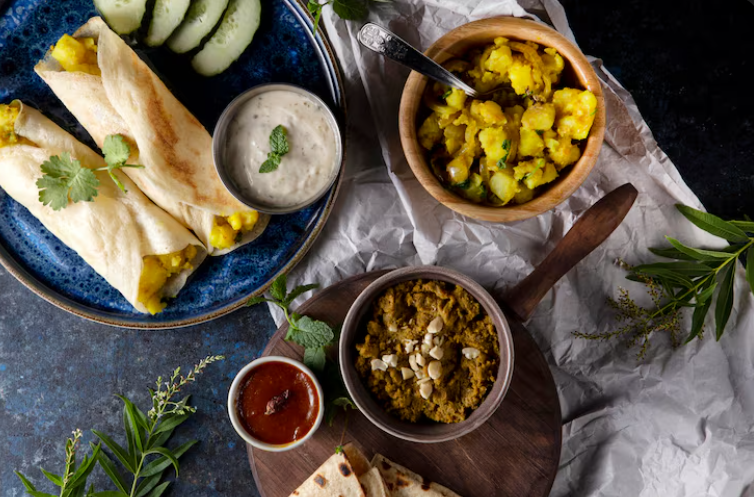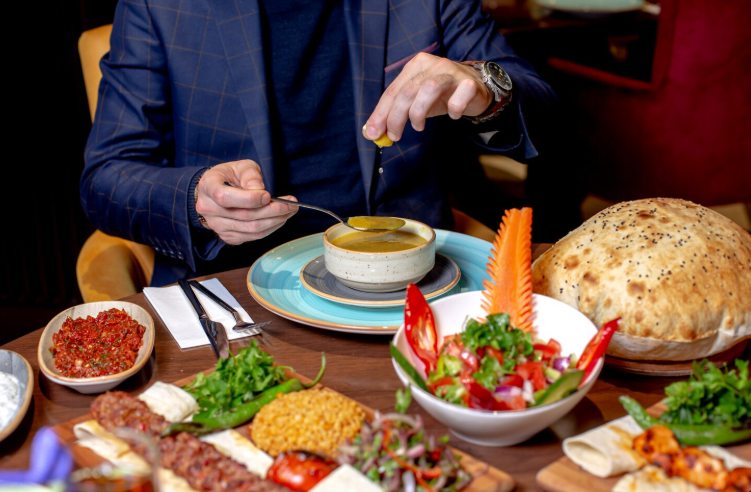
- August 1, 2025
How Does a Food Franchise Business Work? A Complete Guide for Aspiring Entrepreneurs
How does a food franchise business work? It’s a structured system where individuals operate a restaurant under an existing brand name using its processes, systems, and reputation to run a profitable food outlet. In this model, the franchisor licenses the rights to its brand and methods to a franchisee in exchange for a fee and royalties.
In the current competitive food landscape, owning a food franchise offers a safer, more efficient way to enter the restaurant business. India has witnessed tremendous growth in food franchising, from global QSR chains to homegrown regional concepts like Mysore Aduge. This model provides a win-win for both parties — the franchisor scales quickly, and the franchisee gains access to a trusted business blueprint.
Before investing, it’s vital to understand how does a food franchise business work in practice — from initial research and legal agreements to daily franchise operations and long-term growth.
What Is a Food Franchise Business?
A food franchise business is a licensed partnership where an individual (the franchisee) is granted the right to open and operate a food outlet using a franchisor’s established brand, systems, and support. This business model is popular because it minimizes the risk of failure and provides a clear framework for operations.
Unlike a traditional startup, a food franchise allows entrepreneurs to skip the trial-and-error phase. Instead, they adopt a model that has been tested, optimized, and scaled. This is especially helpful in the food and beverage sector, where consumer trust and consistency are crucial.
The franchisee-franchisor model ensures that the franchisee benefits from brand equity while the franchisor maintains control over quality, branding, and operations. This relationship defines how a food franchise business works — through mutual dependence and shared objectives.
Franchise operations typically include marketing guidance, menu standardization, staff training, and access to a centralized supply chain — all of which simplify business management.
Types of Food Franchise Models
There are various types of food franchise businesses, each suited to different budgets, locations, and business goals. Understanding these helps you choose the right fit for your ambitions.
- Quick Service Restaurants (QSRs): These are fast-food outlets like Bonchon that specialize in quick preparation and take-away or dine-in service. Ideal for high-traffic locations. Learn more about options like best fast food franchise in India.
- Casual Dining and Fine Dining: Full-service restaurants that offer a complete dining experience. Often require higher investment and are ideal for upscale markets.
- Cloud Kitchens: These kitchens operate without customer-facing outlets. Kouzina is a leading example. This model focuses entirely on delivery via apps and online ordering.
- Food Trucks and Kiosks: Low-cost and flexible options suitable for events, malls, or outdoor areas. They offer mobility and reduced operational overhead. Some are listed in the low-cost food franchise category.
- Regional Cuisine Concepts: Brands like Mysore Aduge serve authentic regional food and are gaining traction as customers seek culturally rich, vegetarian options. Explore vegetarian restaurant franchise opportunities.
No matter the format, the core of how a food franchise business works lies in its uniformity and brand integrity, regardless of the business size or model.
How Does a Food Franchise Business Work?
This is the heart of the article — understanding how does a food franchise business work from start to finish. Here’s a detailed breakdown of the process:
1. Research and Brand Selection
Start by identifying the type of food you want to serve and the target market. Look for brands that align with your vision, values, and budget. Analyze their market presence, online reviews, and support structure. Brands like Bonchon offer international appeal, while Mysore Aduge taps into authentic regional cuisine with cultural depth.
2. Signing the Franchise Agreement
The franchisee-franchisor model is formalized through a legal agreement. This document outlines responsibilities, territory rights, franchise fees, royalty structure, branding standards, and support details. It is essential to read this thoroughly or consult a franchise lawyer before signing. Refer to restaurant franchise cost in India for better planning.
3. Setting Up Franchise Operations
Once the agreement is signed, the setup begins. The franchisor helps in location selection, store layout, kitchen design, branding elements, and equipment sourcing. The brand’s established guidelines will dictate the outlet’s aesthetics and customer flow. Proper setup ensures consistency in experience, which is how a food franchise business works to maintain brand trust.
4. Staff Training and Onboarding
The franchisor typically provides extensive training for franchisees and their staff. This includes food preparation, customer service, hygiene, inventory management, and tech systems. Training plays a major role in maintaining consistent quality — a vital element of franchise operations.
5. Running Day-to-Day Franchise Operations
After launch, the franchisee is responsible for running the business. This includes:
- Managing inventory and ordering from approved vendors
- Ensuring customer satisfaction and cleanliness
- Hiring and training staff
- Following standard operating procedures (SOPs)
- Tracking sales, expenses, and performance
Franchise operations are designed to be repeatable and easy to follow, ensuring that each outlet delivers the same experience.
6. Marketing and Brand Support
Franchisors often run national or regional marketing campaigns. Franchisees also receive digital marketing toolkits, promotional templates, and access to social media strategies. Some brands offer local area marketing support too, helping the outlet grow footfall and visibility.
Understanding each of these steps is critical to knowing exactly how does a food franchise business work in the real world.
Success Factors in a Franchise Model
To succeed in a food franchise business, focus on the following:
- Consistency: Maintain the same quality, taste, and service as the brand promises.
- Process Adherence: Stick to the SOPs and operational guidelines provided by the franchisor.
- Customer Engagement: Build a loyal customer base through great service and quality food.
- Staff Management: Train and retain good employees, as they directly affect the customer experience.
- Technology Integration: Use POS systems, delivery platforms, and analytics tools for efficient franchise operations.
These principles form the backbone of how a food franchise business works and thrives.
Advantages of Food Franchising
Food franchising offers several strong advantages:
- Proven Business Model: You’re following a roadmap that’s already successful.
- Brand Recognition: Consumers are more likely to trust and visit a known brand.
- Ongoing Support: Training, vendor access, marketing, and operational guidance reduce your workload.
- Lower Risk: Compared to launching a new restaurant, the risks are significantly lower.
- Faster ROI: Structured pricing, supply chains, and demand forecasting help you break even quickly.
This is why so many first-time entrepreneurs ask, “how does a food franchise business work?” — because it offers an achievable way into the industry.
Challenges You Should Be Aware Of
No business model is without challenges. In franchising, some of the hurdles include:
- High Franchise and Royalty Fees: These reduce profit margins but also provide strong support.
- Limited Flexibility: You cannot change the menu or branding to suit personal preferences.
- Staffing Needs: Consistent training and managing staff turnover can be demanding.
- Competitive Locations: In urban centers, saturation can reduce market share.
- Strict Compliance: Non-adherence to the franchisor’s processes can lead to penalties or contract termination.
Despite these, many still prefer this model due to the predictability it offers once you understand how a food franchise business works in your local market.
Comparing Franchise Opportunities: What to Look For
Before signing up, evaluate food franchises using these factors:
- Brand Equity: Established brands bring instant trust.
- Support Infrastructure: Strong franchisors offer complete operational and marketing support.
- Investment and Returns: Review startup costs, breakeven timelines, and long-term revenue potential.
- Cultural Fit: Choose a brand that resonates with your audience. Mysore Aduge, for instance, connects well with vegetarian and heritage-focused consumers.
Every successful investment begins with knowing exactly how does a food franchise business work across various formats and regions.
Why Regional Food Franchises Like Mysore Aduge Are Gaining Traction
Regional cuisine franchises are growing because:
- Consumers seek authentic, traditional food experiences
- Tier 2 and Tier 3 cities are underpenetrated by national brands
- Regional brands like Mysore Aduge tap into local pride and culinary nostalgia
- The investment-to-return ratio is often more favorable due to lower overheads
- Vegetarian concepts have a wider reach in India
Mysore Aduge stands out with its dedication to Mysorean royal recipes, sattvik cooking, and full franchisor support. It’s a shining example of how a food franchise business works when cultural identity meets operational excellence.
Conclusion
So, how does a food franchise business work? It operates on a well-structured partnership where franchisees leverage a franchisor’s brand, model, and support to run a successful restaurant. From initial training to marketing and supply chain access, every step is streamlined for efficiency.
This model is ideal for entrepreneurs seeking predictable growth, reduced risk, and brand-driven success. Whether you’re investing in an international chain or a local gem like Mysore Aduge, food franchising offers a smart path to business ownership.
Partner with Mysore Aduge
Bring the authentic taste of Mysore to your city. Mysore Aduge offers a rewarding vegetarian food franchise opportunity rooted in cultural richness and regional identity. With comprehensive support in setup, training, marketing, and daily franchise operations, your journey to restaurant ownership starts strong.
Start your food business journey with Mysore Aduge today.
Frequently Asked Questions
It works by allowing a franchisee to operate under a franchisor’s brand name, using its systems, training, and products to offer a consistent customer experience while paying fees and royalties in return.
In India, franchising involves signing a legal agreement, setting up operations with guidance from the franchisor, and running a food outlet using standardized branding and processes. Brands like Mysore Aduge, Kouzina, and Bonchon follow this model.
They include inventory management, staff training, food preparation, marketing, and customer service — all guided by the franchisor’s playbook.
It is a legal and business relationship where the franchisor licenses its brand to the franchisee, who invests in and operates the outlet under set guidelines.
Investment ranges from ₹5–50 lakhs depending on the format — kiosks, QSRs, or dine-in — and the brand.
Yes, most reputable food franchises provide initial and ongoing training to maintain brand standards.
No, but it helps. Most franchisors offer enough support and training to make it accessible to beginners.
Yes, especially for those looking for a vegetarian, culturally rich franchise that offers strong support and unique regional appeal.








